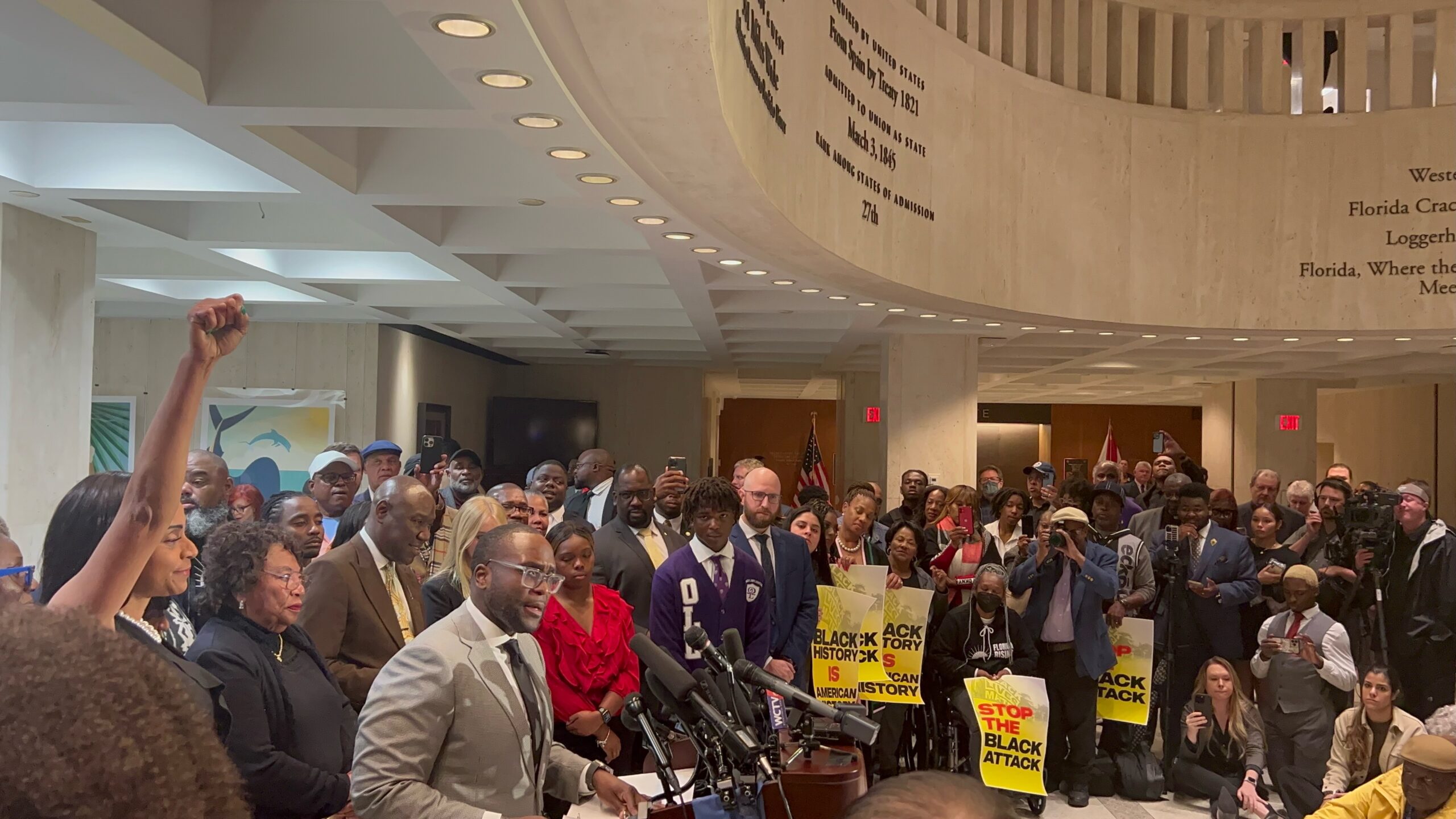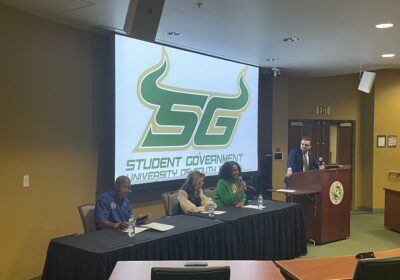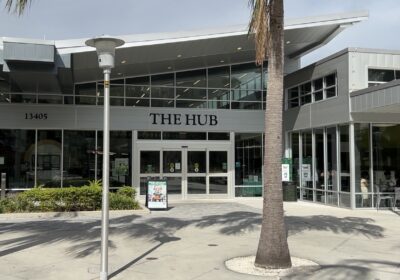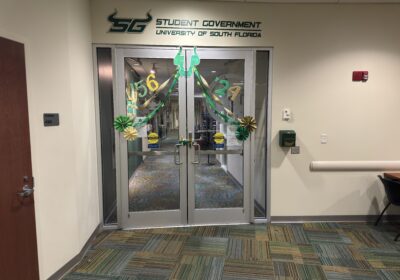DeSantis announces goal to minimize diversity efforts in higher education, USF’s response unclear

Following a request to the state’s public universities in late December to detail costs related to diversity, equity and inclusion (DEI) and critical race theory (CRT), Lt. Gov. Jeanette Nuñez announced Tuesday that the state will attempt to curb DEI efforts in higher education.
As of Wednesday, USF hasn’t responded to the governor’s new plans regarding DEI.
Out of the 12 public universities in Florida, USF reported the most spending totaling $8.7 million, of which $2.5 million came from state funds, according to the university’s final report. Though USF had the highest total spending, Florida A&M University reported the highest amount of state funds used totaling $4.1 million.
These funds were allocated in an array of different initiatives including its own DEI Office, Student Support Services, the Office of Multicultural Affairs and a Supplier Diversity program which received a sum total of $3,411,354.
The largest expenditure totaled $4,120,000 and went towards Upward Bound, a federally funded TRIO program funded by the U.S. Department of Energy. The program focuses on building skills and motivation to complete secondary and post-secondary education.
Other programs included the Institute on Black Life, which received $17,500 of state funded money and the St. Petersburg/Pinellas Higher Education for Racial Equity consortium that received $43,178.
The university also invested in trainings such as an online certificate called “DE&I in the Workplace” which obtained $120,000 as well as an “Inclusive and Equitable Pedagogy” training which received $41,444 and aimed to incorporate equitable practices into classes.
A total of $910,000 went towards academic courses at the university focusing on creative thinking, human and cultural diversity, ethical reasoning and civic engagement, and high impact practice.
The Oracle contacted USF’s DEI office and Board of Trustees (BOT) for comment. Both did not comment on the findings of the report.
Associate professor of philosophy Richard Manning said that requests and other recent legislation pursued by the governor’s office has made faculty feel as though they are constantly under attack by a hostile state government.
Faculty who were hired to teach in areas relating to DEI and CRT feel threatened and are hoping for support from the university, according to Manning. However, he said the university leadership can’t or won’t speak in opposition for fear of reprisal, specifically in the form of slashed funding.
“[DeSantis] is letting teachers and scholars know that those ideas are not welcome here,” Manning said.
“His actions, policies and frank rhetoric say ‘Don’t come to Florida if you care about the ideas of systemic, racial and sexist injustice. Don’t come here because we won’t fund you and we won’t let such concepts be taught.’ The result will be to prevent higher education institutions from acting in a way that is sensitive to and conscious of injustices that result from systemic racism and sexism.”
Assistant professor Kyaien Conner said it is also a personal attack on those who are members of underrepresented minority racial groups and who are engaged in DEI work. Comments and legislation pursued by the governor’s office that invalidate the research and work faculty are doing makes it very hard to go to work every day, she said.
Conner said the memo requesting the information was also vague and did not provide a clear rationale as to why the information was needed.
“We are providing a great deal of information without a full understanding of what that information is going to be used for and leaving many of us to make assumptions about what the ultimate goal of all of this is,” Conner said.
Manning said DeSantis is perpetrating epistemic injustice by cutting off students from a knowledge base that would help illuminate both their own histories and circumstances and the history of the country.
There has been hyperfocus on targeting DEI, which are programs that are put in place to create social justice and enhance equity, according to Conner. She said the new measures limit faculty’s ability to engage in critical conversations that are supposed to take place in higher education.
“DEI is a concept that has been misconstrued and used again as a scapegoat in a larger political fight that we haven’t even begun to fully realize the potential implications of and how that’s going to impact the academy in general,” Conner said.
The erasure of DEI and critical race theory will have a significant impact on students, according to Conner. She said a diverse faculty supported by the concept of DEI makes a difference for students, psychologically and emotionally, but also in their trajectory.
Conner said students often feel heard and supported by their faculty who are from the same racial or ethnic background, and seeing them in those positions might motivate them to get to that point in their own career.
Effects from the target on critical race theory have already surfaced as some faculty at other state universities have decided not to offer courses due to the risk they may pose towards their career, according to assistant professor David Ponton. At the University of Central Florida, assistant professor Jonathan Cox scrapped courses relating to race for this reason, according to ProPublica.
DEI as a concept is also embedded within all disciplines and therefore the target won’t be limited to just one area, according to president of the Faculty Senate Jenifer Schneider.
Legislation and attempts like this perpetuate ideas that everything should be neutral and colorblind and this fails to acknowledge different life experiences, according to Schneider. She said students want to know that their experiences are valued and they want to see themselves represented in the faculty.
“It helps when you can see someone in a faculty role you can visualize yourself in a way that maybe you didn’t see yourself before,” she said. “When we have diverse people, it brings more resources, it brings better ideas, it brings creativity. We learn from each other. I learn from my colleagues who are different from me, and it’s not helpful to be all the same.”
This investigation won’t be the last of the scrutiny against DEI and CRT, according to Ponton. He said it is likely that more investigations, legislation and policies will follow suit and this unilateral culture war will continue.
“USF can learn from the history of historically black colleges and universities because they have had to contend with two things at the same time – the demands of their student population and, at the same time, the administrators at those schools had to toe the line with the mandates of the states and federal bodies that subsidize them,” Ponton said.
Ponton said pushing back against the DEI work that the university is pursuing is to leave students from non-normative backgrounds out of the conversation. Ultimately, this makes students feel as though they do not belong in that institution, according to Ponton.
“It makes them feel like this is not an institution where their identities are valued, where their history and heritage are celebrated, where their struggles are seriously considered,” he said.
“[It tells them] that they are supposed to just assimilate into a baseless, white blob where everyone is the same. When that happens, students don’t do as well with their schooling. When they’re empowered, they do well.”






